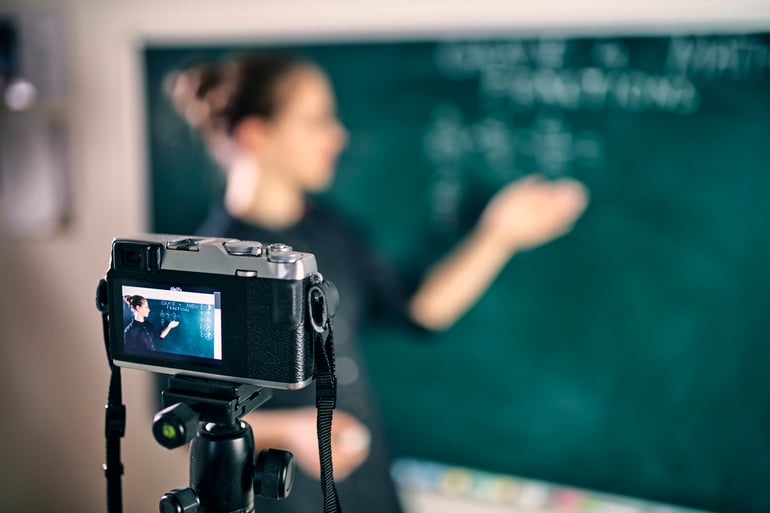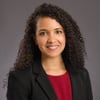
In three parallel interviews, I had the opportunity to speak with three Facing History educators from middle and high schools located on the East Coast of the United States. They range in experience level from new to veteran and work in schools large and small. Each is planning to return to work this fall in a hybrid format in which they will deliver some instruction remotely and the rest in person in a classroom. Plans to implement hybrid modes of instruction have been provoking immense questions, concerns, and even expansive visions for the future of education beyond the COVID-19 pandemic. Learn how each of these educators is navigating the return to school below:
KS: How are you feeling about returning to the classroom?
Lisa: My school is still in the process of organizing exactly what the format is going to look like for opening days. We moved our start date back so we could have additional professional development days focused on technology and transition because we are going to be operating on a hybrid schedule, but teachers got to choose whether or not they wanted to do virtual or hybrid and I'm going to be a hybrid teacher. I feel like my school district is very organized and there's more than one committee of teachers and administrators working very hard to accommodate all of us and make us as safe as possible. Our building will host several professional development days in September on instructional techniques and transition protocols. I guess our hands have been forced...we have to be creative now!
Marc: At my school, the plan is that I will have a group of students who will just work remotely and then we're looking to have three pods of students where every pod would be taught in person for two days and then the other three days they'd be remote. Students will have five and a half hours of instruction and then we’ll stay and plan for the hybrid part of our program. If I'm in person for two days with one group, then I will also be planning for the other three days for the other two groups that are not in session. It's a little complicated but I'm looking forward to having a small pod of students. I'm really thinking it's about identity work, about healing work, and it's about getting our stories out and shared so we can build a really strong community during September.
Olivia: I'm feeling very under-prepared since we haven't gotten much detail or instruction on what exactly everything’s going to look like. I know, in the broad sense, the goal is to have 50% of the students in class on any given day so that when I'm delivering a lesson, it will be both to students in front of me physically and to students at home. We haven't gotten much direction on how to make it work but just looking at what's happening in schools that have already opened, I think it's inevitable that once you have a lot of people together and cases start spreading, we’ll be forced to close down.
KS: How are you and your colleagues navigating getting the support and flexibility you all need to preserve your health?
Olivia: I would personally prefer to start virtual and even though I know that it's not the most effective method of teaching, I think it's the safest for all parties involved, myself included. A lot of times teachers aren't allowed to think about themselves. And I'm worried about myself. I'm only in my 20s and people say, "Oh, the risk is low," but it's still there. And I don't want to get sick. I don't want to die. That's not something I signed up for. So, that's something that I'm definitely wrestling with. I also wrestle with the fact that I'm not tenured. So there's only so much I can do in terms of pushing back against the decisions of my district and voicing my opinion. But meanwhile, there are parents who work and can't stay home...but at the end of the day, I didn't sign up to be a babysitting service, but that's the rhetoric that's circling.
Another thing is that when we first went virtual back in March, you saw across the nation parents realizing the rigor of what teachers do and coming out saying "teachers are superheroes" and "they should be paid millions" but now, it's kind of reverted back to saying "oh well you just don't want to come back to work anymore." But I'm allowed to prioritize my health and do what I think is best for me and those in my life.
Lisa: I think non-tenured teachers feel that it's to their advantage to be responsive to any kind of protocols that come down from the administrative level. That being said, I work in a very unique district. I prefer not to stay in the building during my remote instruction time so I don’t have to wear my mask when I interact with my students. My principal approved this and I'm a non-tenured teacher. I can't speak for other non-tenured teachers in my building, but I feel most would probably follow protocol without advocating for themselves in spite of the fact that my district has made very clear to all of us that if we don't feel comfortable with something, we have the right to choose. I think there may be outside pressure working on schools such as parents who need to return to a high-demand job. In some ways we all feel cornered.
Marc: On a team with educators and in town halls with families, anxiety about the virus is high all around. And so, am I worried? Absolutely. Am I crippled by it? Absolutely not. I can talk about my concern, but I can't live my concern because I have to be neutral in order for students to be who they are. I do know that when those students walk in, they have got to think that I'm not worried and that we will take precautions. There’s a lot I’m not in control of but what I am in control of is mostly showing my students that you can still laugh, you can still care about the world, and you can still do something during this time. We have to model that we can handle anything and work continues.
KS: What learnings from this time are you hoping we will take with us into the way we approach education after the pandemic?
Olivia: The pandemic has really brought to light virtual learning and different students’ experiences with it. We can see more clearly now how students’ home lives don't look the same. We think, "oh, everyone has an iPad and internet, so it's going to be fine" but that’s not always true and access to a quiet space at home isn’t universal. I also think there's been a bigger push for social-emotional learning beginning this school year. Because of all of the trauma and social unrest of the past few months, we don't really know where students are going to be emotionally and so there’s more focus on the importance of SEL that I think we can carry forward.
Marc: Bettina Love has pointed out how authorities have told us for years that we can't get rid of testing and then, suddenly, it's like “we got rid of testing!” Similarly, “we don't have enough money for computers for everyone,” but then, it turns out, everyone gets a device. Possibilities are here. So if we're going to do some abolitionist teaching, now is the time to reinvent; now is the time to change what we don't like. So often, people say that they want change, but if given an opportunity or a crisis, no one's brave enough to do it. You can sit there and complain about it but now it's your time. Let's do something bold. Another thing I’d like to see is time to care for ourselves or to care for others. Why can't we just work for four days and have three days off? If we do some synchronous conversation, why can't we do some of the work asynchronously elsewhere with all of these supports?
Lisa: Teachers and schools are being forced to rethink what an inquiry model of learning looks like using online platforms. Sounds simple, but simulating this kind of classroom dynamic in a virtual context is twice the work. This is not an easy task, but it has brought everyone together, carefully thinking through choices we make regarding instruction and community. Creating curious and compassionate learners takes dedication to your practice. I see teachers all around me responding to this challenge with tremendous energy and passion. Teachers are leaders: we are part of the pathway to citizenship and my hope is that we will be recognized as part of the conversation about building a better democracy.
--
Facing History and Ourselves invites educators to use our Back to School 2020 Resources, complete with tools designed to help teachers attend to the unique challenges that have emerged over the last several months.


